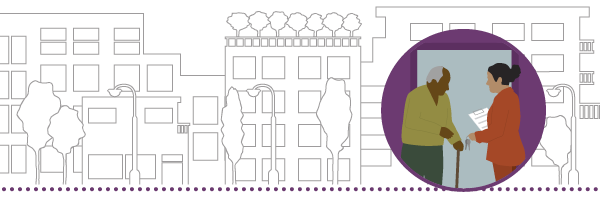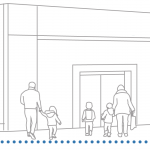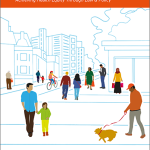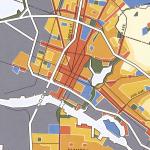Housing
Episode 6: Policy solutions to advance housing justice
How can we create local housing solutions that advance racial and economic equity, mitigate displacement, and ensure affordable and quality housing for all residents?
Access to stable, safe, and affordable housing is critical to leading a healthy life, but our housing system has a history of discrimination — from past policies like redlining and racial covenants to current policies such as exclusionary single-family zoning. Discriminatory policies have perpetuated the disparities in housing access we see today. To disrupt these patterns of injustice, we must address the drivers of health inequity in the housing system.
In Policy Solutions to Advance Housing Justice, Episode 6 of our virtual discussion series, our panelists explore how structural discrimination has contributed to our current housing crisis. Using real-world examples, they discuss strategies for navigating legal and policy barriers to housing equity such as preemption and eviction.
This webinar is for members of community organizations, anchor institutions, and local governments who want to learn about new tools and practices to prioritize racial equity in local housing policy. Tune in for innovative solutions that promote more equitable health and housing outcomes.
Expert Panel
- Gregory Miao, senior attorney, ChangeLab Solutions (moderator)
- Nestor Davidson, professor of law and director, Urban Law Center, Fordham University School of Law
- Kristin Maun, director of housing development and incentives, Tulsa Authority for Economic Opportunity
- Zach Neumann, executive director and co-founder, COVID-19 Eviction Defense Project
Highlights
Systemic change: Rather than focusing on reducing the prevalence of any single disease, the challenge is finding ways to change the distribution of healthy environments, economic resources, and opportunities. ―Gregory Miao
Mapping health inequities: We have to address why we have majority non-white neighborhoods in the city of Tulsa. Every municipality should be looking at what its geographic and racial makeup is and why the map looks that way. ―Kristin Maun
There is structural discrimination within eviction processes; the legal structures, including timelines and burden of proof, are oriented toward remedies for landlords. ―Gregory Miao
Community engagement: I want to highlight how important it is to center the communities you’re working with, which is a trend we’re seeing all over the country. We need to revive and reimagine how community engagement can happen so that it’s not a box-checking exercise. ―Nestor Davidson
Eviction: There is structural discrimination within eviction processes; the legal structures, including timelines and burden of proof, are oriented toward remedies for landlords. ―Gregory Miao
One of the lessons of the pandemic is that crisis begets creativity. The crisis has created the space for solutions that didn't seem possible until very recently, and now more funding is flowing into this sector. ―Nestor Davidson
Cross-sector collaboration: What's been compelling and hopeful to see is housing come to the forefront in both the economic justice sector and in the anti-racism sector. ―Zach Neumann
Funding: One of the lessons of the pandemic is that crisis begets creativity. The crisis has created the space for solutions that didn't seem possible until very recently, and now more funding is flowing into this sector. ―Nestor Davidson
Watch a recording of episode 6:



